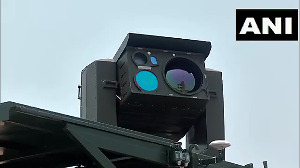The Supreme Court on Monday pulled up the Centre for not being serious on disposal of toxic waste lying in the defunct Union Carbide India Ltd plant, now represented by DOW Chemical Company, in Bhopal for the last 28 years and asked it to take a final decision on it soon.
"You are not sure even after 28 years. It is because people affected and living in Bhopal are poor. It is a failure on your part to deal with this," a bench of justices G S Singhvi and S J Mukhopadhaya said, adding that "there is lack of seriousness in handling this problem".
It asked the Centre to place before it the decision taken by the Group of Minister (GoM) on the issue by the end of June.
The toxic waste has been lying in the UCIL plant since the 1984 Bhopal gas tragedy, the world's worst industrial disaster that left over 15,000 people dead and thousands maimed.
Expressing reservation in interfering in government decision, the bench said it "never wants and should never want to run the government", but it has to keep in mind public interest.
The court on May 11 had put on hold its order directing disposal of toxic waste lying in the plant at the Pithampur waste treatment storage and disposal facility in Madhya Pradesh's Dhar district.
It had deferred the implementation of its April 4 order in the wake of various issues raised by Madhya Pradesh government
and some NGOs about the "possible fall-out of the trial run"
for the disposal of UCIL wastes and the fact that the "GoM considering the issue is yet to take a final decision".
When the matter was taken up today, the government, however, said that it will soon decide on the issue and the GoM will be meeting on June 8 to take a decision on it.
"In Pithampur, people are bound to protest. They are entitled to protest. You have not taken any decision. Even this affidavit of yours is so vague and you always say that you are hopeful," the bench said and said that people affected by the toxic waste can approach court for compensation.








 © 2025
© 2025